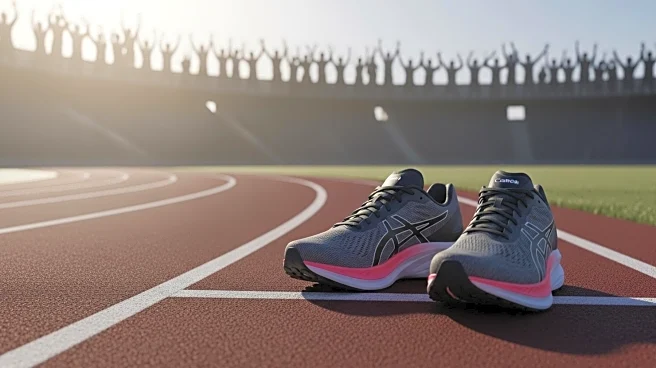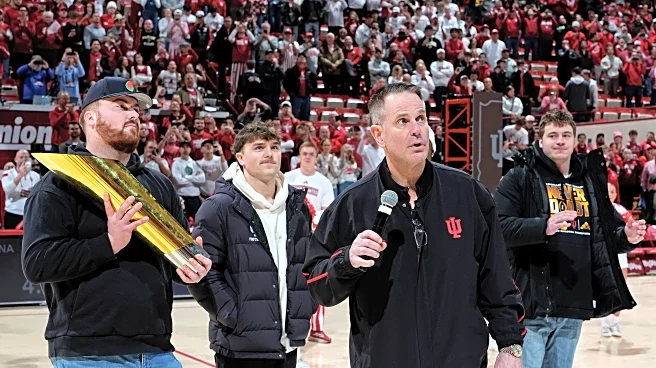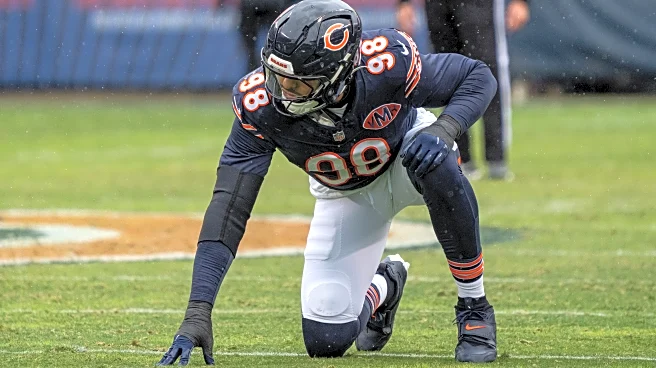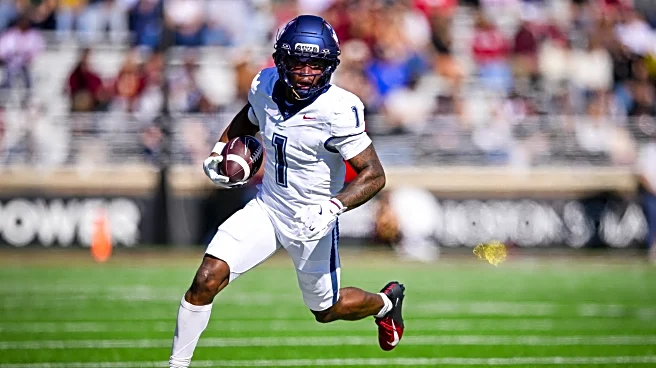What's Happening?
Kathrine Switzer, known for being the first woman to officially run the Boston Marathon nearly 60 years ago, continues to inspire a global movement in women's running. Switzer's participation in the 1967 Boston Marathon was a pivotal moment in sports history, as it challenged the prevailing norms that excluded women from long-distance running events. Her entry into the marathon, under the bib number 261, became a symbol of empowerment and change. Switzer's story is highlighted in a recent discussion with ABC News' Linsey Davis, where the impact of her actions on women's sports and the broader movement for gender equality in athletics is explored.
Why It's Important?
Switzer's groundbreaking participation in the Boston Marathon has had a lasting impact on women's sports, encouraging greater female participation in running and other athletic events. Her actions helped to dismantle gender barriers in sports, leading to increased opportunities and recognition for female athletes. The movement she inspired has contributed to a broader societal shift towards gender equality, influencing public policy and cultural attitudes towards women in sports. Organizations and events that promote women's running continue to thrive, drawing inspiration from Switzer's legacy and advocating for equal opportunities in athletics.
What's Next?
The legacy of Kathrine Switzer and the movement she inspired is expected to continue influencing future generations of female athletes. As more women participate in running and other sports, there is potential for further advancements in gender equality within athletics. Stakeholders, including sports organizations and advocacy groups, may continue to push for policies that support and promote women's participation in sports. Additionally, Switzer's story may inspire new initiatives aimed at empowering women through sports, fostering a more inclusive and equitable environment in athletics.
Beyond the Headlines
Switzer's story highlights the intersection of sports and social change, illustrating how individual actions can lead to significant cultural shifts. Her participation in the Boston Marathon not only challenged gender norms but also sparked conversations about women's rights and equality. The ongoing impact of her legacy underscores the power of sports as a platform for advocacy and change, encouraging a reevaluation of traditional gender roles and inspiring future generations to challenge societal barriers.









